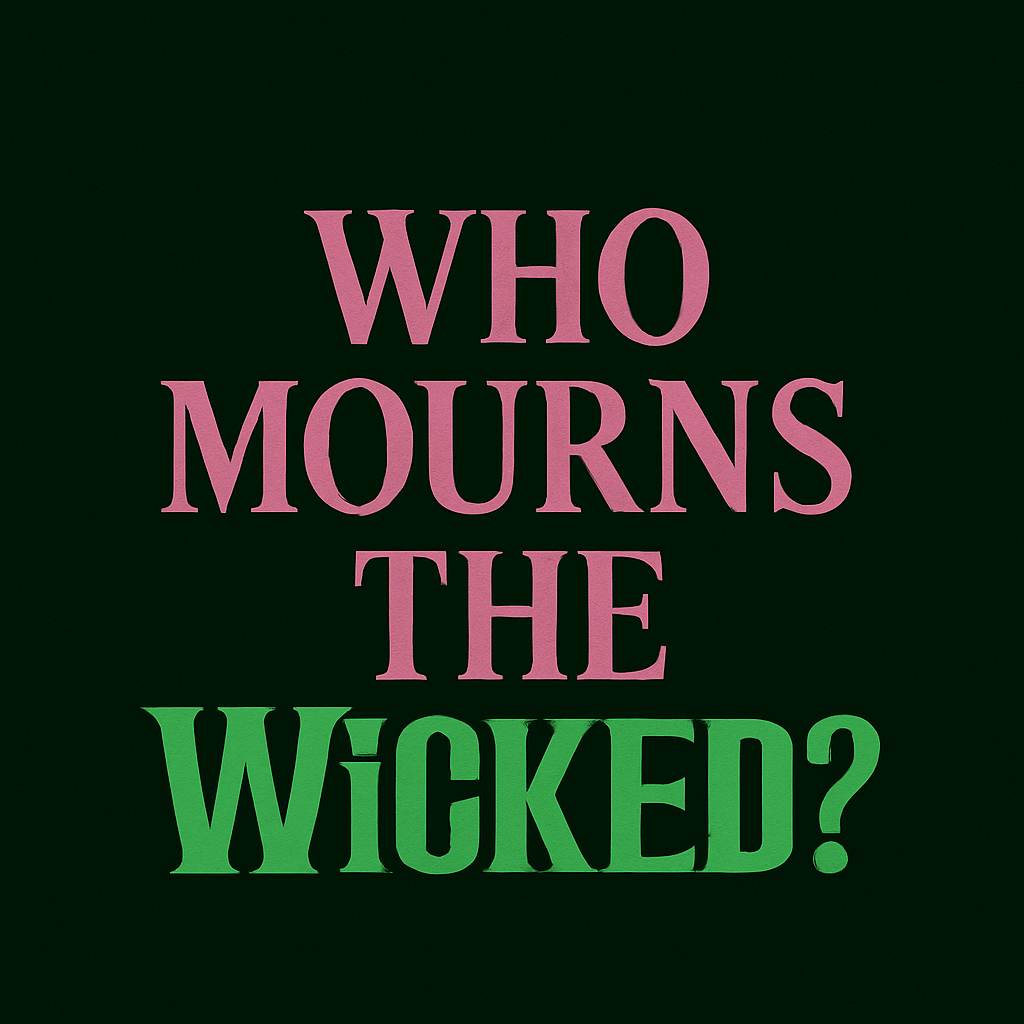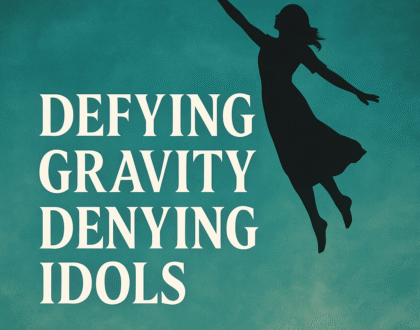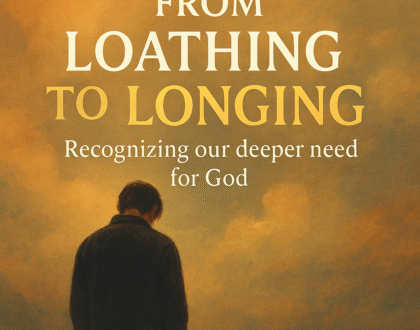God Mourns the Wicked

Sunday’s worship gathering invited us to look honestly at the word “wicked”—not as a label for others, but as a mirror for ourselves. Drawing from the musical “Wicked” and its cultural resonance, we explored how quick we are to join the chorus when someone else stumbles, to celebrate the downfall of those we deem “wicked,” and to distance ourselves from the label. Yet, Scripture challenges this instinct. The word “wicked” appears hundreds of times in the Bible, most often describing not some distant villain, but the very real brokenness in human hearts—including our own.
We considered how society, and even the church, can be swept up in public narratives that divide the world into heroes and villains. The story of Oz, like so many stories in our world, shows how crowds can be wrong, how the majority can misjudge, and how those labeled “wicked” may actually be God’s chosen. The Bible is full of such stories: prophets, peacemakers, and even Jesus himself were called wicked by their contemporaries. Yet, God’s heart is not for condemnation, but for redemption. As Ezekiel proclaims, God takes no pleasure in the death of the wicked, but desires that all turn and live.
We reflected on the danger of self-righteousness—how easy it is to point at others and say, “At least I’m not like them.” Jesus’ parable of the Pharisee and the tax collector reminds us that it is the humble, not the self-assured, who go home justified. The line between good and wicked runs through every human heart. Our call is not to join the crowd in condemnation, but to mourn, to hope, and to work for the redemption of all—including ourselves.
The story of John Newton, author of “Amazing Grace,” illustrates this truth. Once a slave trader, he was transformed by grace—not instantly, but over time—reminding us that no one is beyond God’s reach. The table of Christ is not for the sinless, but for the sinful; not only for the righteous, but also for the wicked who know their need, who are willing to see their wickedness, and who want to turn. The good news is not that the wicked are gone, but that the wicked can live—redeemed, forgiven, and beloved by God.
Key Scriptures
Ezekiel 33:11
Luke 18:9-14
Romans 3:23
Jeremiah 17:9
Ecclesiastes 7:20
Key Takeaways
- The Instinct to Judge Others Masks Our Own Need for Grace – It is a common human impulse to celebrate the downfall of those we label as “wicked,” believing it secures our own sense of righteousness. Yet, Scripture repeatedly warns against this, reminding us that wickedness is not just “out there,” but within each of us. True spiritual maturity begins when we turn the mirror inward and recognize our own need for mercy. Only then can we extend the compassion God desires for all people. [19:47]
- God’s Heart Is for Redemption, Not Condemnation – Ezekiel’s words ring clear: God takes no pleasure in the death of the wicked, but longs for their repentance and life. While the world may cheer at the fall of others, God mourns and calls us to do the same. Our calling is to hope for restoration, not to join the chorus of condemnation, trusting that God’s grace is wide enough for all. [30:41]
- The Crowd Is Often Wrong—Beware the Simplicity of Labels – History and Scripture are filled with examples of people wrongly labeled as wicked or dangerous, only to be vindicated by God’s purposes. From prophets to peacemakers to Christ himself, the majority can misjudge, and the crowd can be mistaken. We must be cautious about whom we label as “wicked,” lest we find ourselves opposing the very ones God has chosen. [32:03]
- The Line Between Good and Wicked Runs Through Every Heart – It is tempting to divide the world into heroes and villains, but the reality is far more complex. Jesus’ teaching about the log in our own eye, and his parable of the Pharisee and the tax collector, remind us that self-righteousness is itself a form of wickedness. Humility and honest self-examination are the path to justification and peace with God. [38:58]
- Grace Is for the Wicked—The Table Is Open to All – The story of John Newton, and the invitation to Christ’s table, reveal that no one is beyond redemption. The meal is not for those who have no sin, but for those who know their need and come in humility. God’s love is not reserved for the righteous, but is poured out for the wicked, inviting us all to receive mercy and to extend it to others. [49:10]
Questions for Reflection
Pastor Jason said, “The line between good and wicked runs through every one of our hearts.” What does this mean for how we view ourselves and others? [36:17]
In the parable of the Pharisee and the tax collector, why is self-righteousness considered a form of wickedness? How does humility change our relationship with God? [38:58]
The sermon points out our instinct to celebrate when someone else “gets what they deserve.” Can you think of a recent time when you joined in judging or celebrating someone else’s downfall? What was going on in your heart at that moment? [19:47]
Pastor Jason said, “The table of Christ is not for the sinless, but for the sinful; not for the righteous, but for the wicked who know their need…and desire to turn towards God.” How does this truth affect the way you approach communion or worship? [49:10]
The crowd in the musical “Wicked” and in real life often gets it wrong. How can you guard against being swept up in public narratives or groupthink, especially when it comes to judging others? [32:03]
The sermon ends by asking, “If God mourns the wicked, shouldn’t we?” What is one practical way you can show compassion or hope for someone you might otherwise write off this week? [45:05]
Recommended Posts

Defying Gravity: Rising Above What Pulls You Down
October 2, 2025

God’s Heartbreak
September 22, 2025

From Loathing to Longing
September 16, 2025
